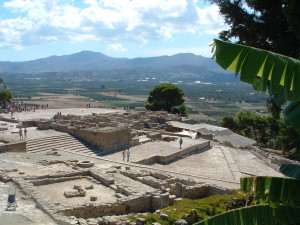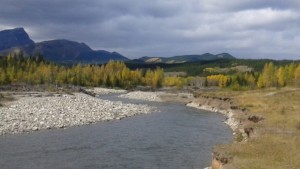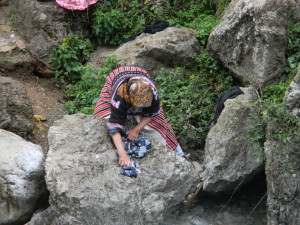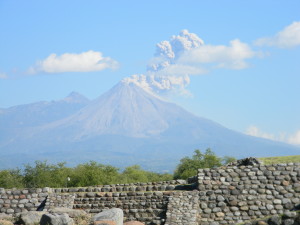A guest post by Hamilton Perez.
There’s one piece of writer’s advice that is, I think, as misguided as it is persistent. The reason it does so well, of course, is because it’s not actually bad advice, it’s just often misapplied. That advice is the old adage: Write what you know.
In life, this translates to something like, “Find what you’re good at and do that.” It’s great advice for when you’re first starting out, either as a writer or in a new career; it helps you discover parts of who you are, what skills you have, unlocks your potential or at the very least points you in that direction.
Looking back, I’m pretty sure that the more seasoned writers who recommended “write what you know” were politely telling me that some part of my writing didn’t ring true. Maybe I described a place I’d never been to, or what it’s like to jump out of a plane, or travel through Europe–whatever it was, I did it wrong. I needed to go back to the beginning and start with something simpler and closer to my own experience.
I took their advice and focused on stories with more familiar settings and characters, and I immediately hit a brick wall. Should I take actual experiences and fictionalize them? Should I write about themes of friendship, love, and loss? What does that look like on page 1? The experiences I’ve had that seemed most suitable for adaptation resisted being written the most.
Trying to tell a story based on an actual experience, even with deviations and embellishments to make them properly fictional, resulted in something constraining and strangely hollow. What I learned from years focused on writing “literary fiction” (a pretentious way to say there are no dragons), was it’s not the memories of heartache or longing that most inspire me, it’s the dreams and fears of what I haven’t yet experienced. Those are the thoughts that get my heart pounding and give a pulse to the page.
For me, “Write what you know” hindered growth by encouraging me to lean on what I already knew or was already good at, instead of pushing me into unknown waters where I could really find what I’m capable of. Ultimately, what I know was just getting in the way. And I’m pretty sure I’m not alone.
Through classes, workshops, and slush reading for magazines, I’ve come across a lot of boring characters and stories surrounded by beautiful writing. And I think this “write what you know” advice is partly to blame. We have a whole generation of budding writers trying to “write what they know” by pulling from homogeneous experiences, and as a result we have literary journals full of mediocre literature. That isn’t to say there aren’t gems out there, or that literary journals aren’t a worthy pursuit, but good writing should take us to unexpected places, not simply look under the fabric of suburban life or failing relationships ad nauseam.
Eventually, I gave up on that and switched to speculative fiction. I have nothing in common (as far as I know) with pillow golems, changelings, or warrior mountain tribes of Martian sand people. But in turning to them, my writing has flourished, and has even allowed me to get back into non-genre fiction by opening up my imagination, rather than shutting it in.
Maybe writing about your past experiences does that for you, in which case, have at it. The ultimate point here is not to dump on that classic advice–it’s don’t pigeon hole your inspiration. Develop whatever interesting idea comes to you and turn it as far off the beaten trail as you can. Sure, 90% of what we create is probably garbage. Glorious garbage! But the rest might just be weird and scary enough to work. At the very least, you’ll grow.
So be messy. Explore new ideas. Go directions that feel alien to you. Poke your fingers into strange holes, ideologically speaking. In the end, you’ll find that what you know seeps through anyway, except it will do so naturally and with more honesty than if you just recounted the string of events that led to a broken heart.
They say life begins at the end of your comfort zone. I believe that’s where good writing begins as well. Because success or failure in the unknown are far more rewarding and exciting than building empires of sand along the familiar shores of home.
Hamilton Perez started writing at age twelve because there weren’t any crossovers between Terminator, Star Wars, and Jurassic Park, and he really thought there ought to be. Alas, after several cease and desist letters from everyone who read those stories, Hamilton moved on to other subjects. He is a slush reader for Fantasy Scroll Magazine and his work has appeared in Daily Science Fiction.





